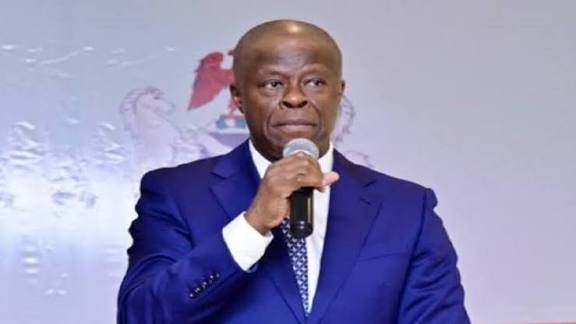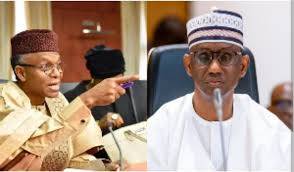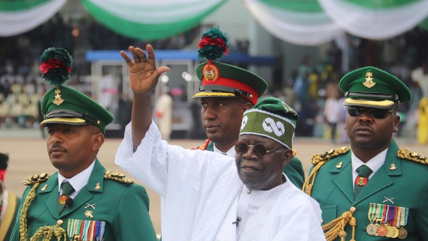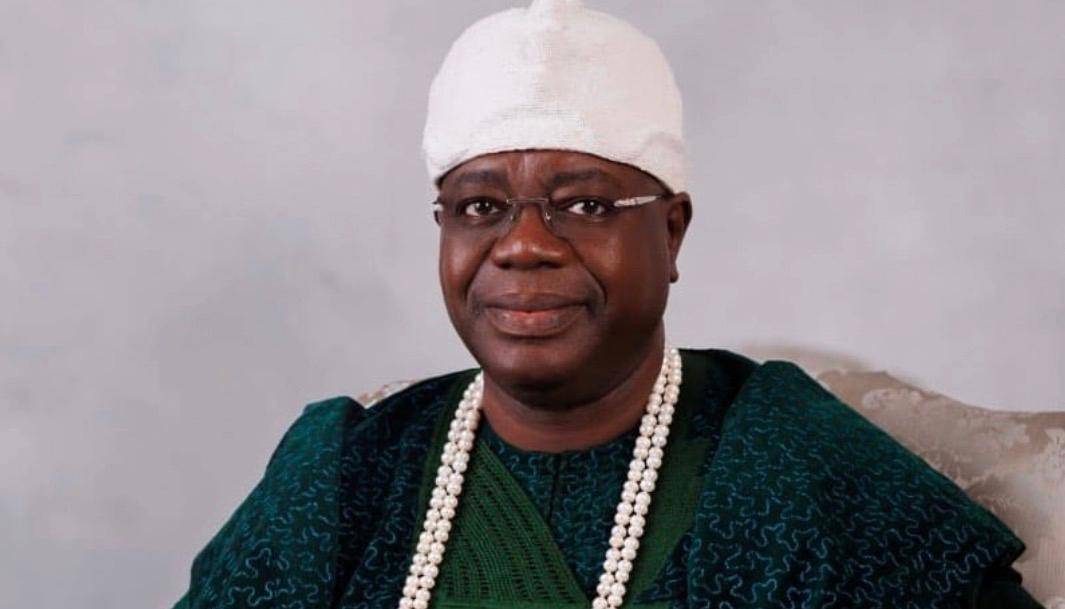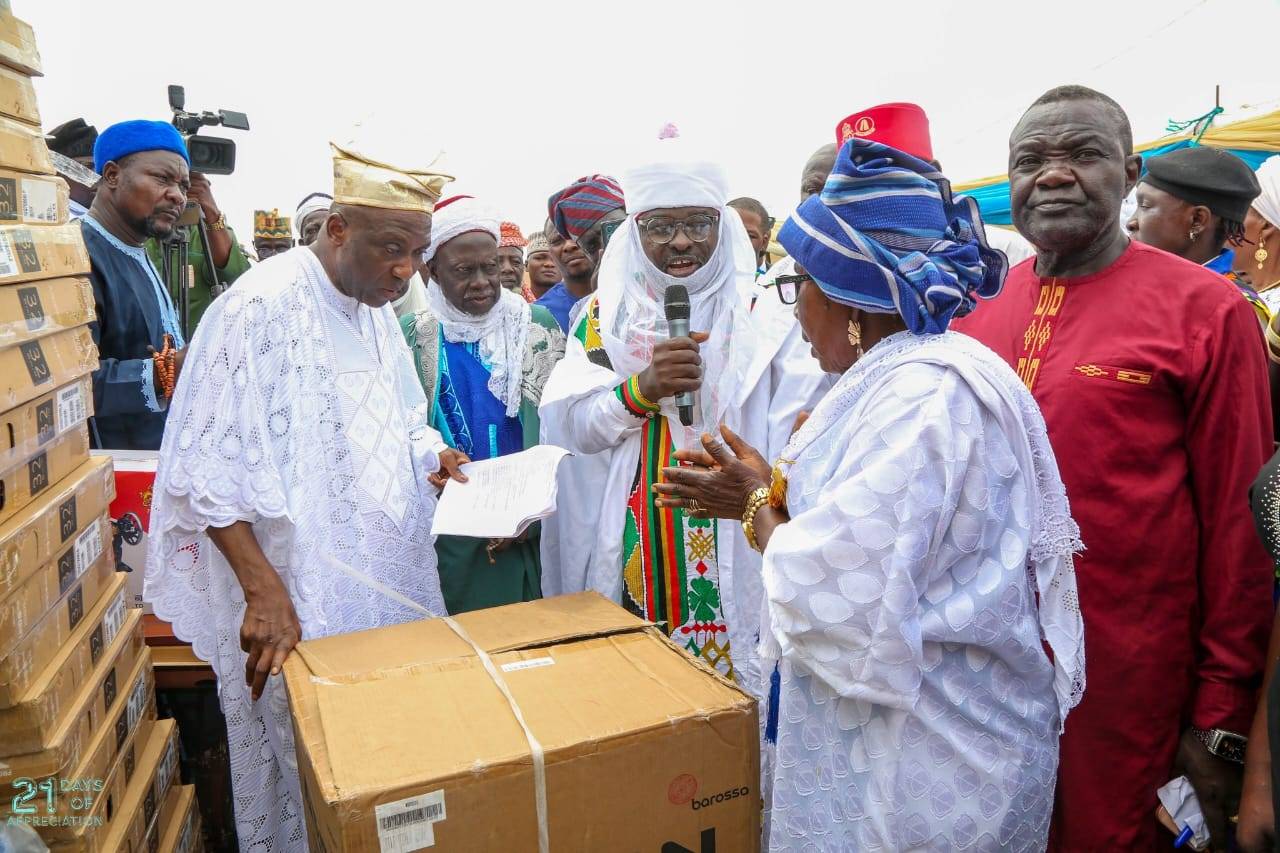By Bola A. Akinterinwa
Birth-right Citizenship is one of the methods of acquiring the citizenship of a country in international law and relations. It falls within the purview of the principle of ius soli according to which nationality is acquired at the time and place of birth. Ius soli is a Latin phrase meaning the ‘right of the soil,’ and referred to as ‘jus soli’ in French language. In the United States, it is also known as ‘birth-right citizenship. Citizenship in the United States is basically acquired by ius soli (right of birth place) or ius sanguinis (right of blood), that is, right of blood descent from parents and grandparents that were or are American citizens. The logic is that the country of citizenship of a child cannot be different from that of his or her parents.
Notably, birth-right citizenship in international relations is not the only condition for citizenship acquisition. It also has different conditionality for its acquisition in many countries. For instance, in the United States, the 14th Amendment of the US Constitution provides for citizenship to people born on US soil or in places under the jurisdiction of the United States on the basis of jus soli. However, the children of foreign Heads of State or foreign diplomatic agents are not entitled. Details of conditions for citizenship acquisition are contained in the US Immigration and Nationality Act.
More importantly, it is this issue of birth-right citizenship that has not only divided the US Presidents, but that has also prompted a US foreign and immigration policy attitude towards Nigerian professionals under President Donald Trump. The new US policy draws attention to the essence and beauty of Nigeria’s quest for strategic autonomy as ‘Tuggarised’ by Nigeria’s Foreign Minister. ‘Tuggarised’ is coined from the name of the Foreign Minister, Yusuf Maitama TUGGAR, to mean his personal touch to the 4-Ds as instrument of strategic autonomy in international politics.
Birth-right Citizenship in Global Practice
First, in the United States, US presidents were generally agreed upon the right of birth-right citizenship until the advent of Donald Trump. Presidents John F. Kennedy, Ronald Reagan, and Barak Obama are on record to have appreciated the roles of legal immigrants in the building of the American nation. They do appreciate the issue of birth-right citizenship and therefore accept the role of 14th Amendment of the US Constitution.
The Fourteenth Amendment to the U.S. Constitution, passed in the Senate on June 8, 1866 and ratified on July 9, 1868, grants citizenship and equal protection under the law to all people born or naturalised in the U.S. Put differently, the formerly enslaved people were and are still considered as bonafide US citizens. They cannot be denied equal protection under the law and cannot be deprived life, liberty or property. Their voting rights cannot be limited. This is what is referred to as birth-right citizenship and this is what is now generating much controversy in the U.S. and having serious implications internationally.
True and ab initio, birth-right citizenship was meant for children of the enslaved people and this is what President Trump preached to the journalists at the Oval Office of the White House: ‘birth-right citizenship was, if you look back when this was passed and made, that was not meant for the whole world to come in and pile into the United States of America… Everybody coming in, and totally unqualified children. This wasn’t meant for that.’
What appears to be intoxicating about President Trump’s policy on the matter is the ambiguity. On the one hand, he complains about the right of birth-right citizenship, and therefore wants to throw it into the dustbin of history, and, on the other hand, he is also supporting the right, but he says that the right cannot be for the whole world. As he reportedly put it, he supports the right ‘100% because it is ‘good and noble thing to do,’ but ‘it was not meant for the entire world to occupy the U.S.’
It is apparently because of the belief that the right is not for the whole world that a Birth-right Citizenship Act of 2005 was introduced by a group of Senators: Lindsay Graham, Ted Cruz, and Katie Britt. The Act is aimed at restricting birth-right citizenship to the children of illegal immigrants and non-immigrant on temporary visas. It provides citizenship to children born to one parent who is either a citizen or national of the U.S., a lawful permanent resident of the U.S. or an immigrant performing active service in the armed forces.
In France, it is jus sanguinis which allows ‘any child who has a French parent to automatically have French citizenship. In the same vein, jus soli allows any child born on French soil by unknown parents, or if one of the parent(s) is a stateless person, the child automatically has French citizenship. And perhaps more interestingly, ‘children born in France to foreign parents born overseas are ‘automatically granted French nationality at age 18 if they are domiciles in France and have been resident in the country for at least five years since age 11.’ Children born to tourists or people on short-term visits cannot acquire French citizenship by birth in France, as proof of residency is required. Children born by foreigners are foreigners until attainment of legal majority. Speaking grosso modo, many European countries have amended the conditions for the acquisition of their citizenship. Some of them have also jettisoned the right. For instance, while Ireland threw away its birth-right citizenship law in 2005, France abandoned its own in 1993.
In Russia, birth-right citizenship is granted if on the date of birth, both or one of the parents is a citizen of the Russian Federation. Like in France, Russia is where birth-right citizenship is automatically conferred if a child is born in Russia, especially if his home country does not grant him or her its own nationality. In other words, if a child born in Russia to two foreign parents cannot acquire the citizenship of either parent, Russia grants citizenship by birth. Generally, ‘any person born in Russia automatically receives Russian citizenship by birth if at least one parent is a Russian citizen Russia. It should be noted that Russians have two passports, one for internal travel and one for foreign trips. Additionally, foreigners can apply for citizenship right by marriage to a Russian after obtaining permanent residency but on the condition that the marriage lasts for more than one year. The marriage has to be validated by presentation of a certificate of marriage with a Russian.
While Russia accommodates dual citizenship and a second citizenship, children born in Finland to parents who are foreigners ‘may only in exceptional cases become a Finnish citizen alone, without a parent obtaining Finnish citizenship. Besides, as noted in https://www.clic.org.hk, ‘a child can acquire Chinese nationality at birth if only one of his parents is Chinese. However, persons who are not of Chinese ancestry are not usually considered to be Chinese albeit they were born in China.
Conditions for birth-right citizenship in Africa are not different. In Ethiopia and based on the Ethiopian Nationality Law of 1930, ‘any person born in Ethiopia or abroad, whose father or mother is Ethiopian, is an Ethiopian subject. In the same vein, a regular marriage of an Ethiopian subject with a foreign woman confers upon the woman Ethiopian nationality. In Ghana, citizenship is largely determined by the time of birth. Considered a Ghanaian is any person born before Ghana’s independence on March 6, 1957 if one of his or her parents was born in Ghana. Those born between March 6, 1957 and August 22, 1969 are also admitted as Ghanaians if at least one parent and one grand parent or one great-grand parent was born in Ghana. Any person born after August 22, 1969 is also a Ghanaian if at least one parent was born in Ghana. And perhaps more interestingly, a child under the age of seven who does not have any known parent is accepted as a Ghanaian while any child under 16 years of age adopted by a citizen of Ghana, is also a citizen. Ghanaian law provides for dual citizenship with effect from 1996. In Nigeria, the Constitution grants citizenship by both ius soli and ius sanguinis as it is done elsewhere. And like in Ghana, persons who lived in Ghana and Nigeria before their independence are considered nationals.
What is particularly interesting about the citizenship of a country is that one, birth-right citizenship is not peculiar to the U.S. only as we have seen with the experiences of other countries. Two, many countries have always reviewed the conditions for the grant of birth-right citizenship. Three, citizenship confers considerable privileges to the nationals concerned. For instance, according to the Henley Passport index, Russia citizens have visa-free or visa on arrival to 119 countries of the world as of 2025. The United States is ranked the 9th global leader with the possibility of a US passport holder being able to travel to186 countries visa-free or visa-on-arrival. Russia is far behind the U.S. in this regard.
Consequently, the quest by Donald Trump to jettison the birth-right citizenship does not only have implications at the domestic level, but also at the level of international relations. It is against this background that the implications for Nigeria’s foreign policy objective of strategic autonomy, a new foreign policy thinking of Ambassador Yusuf Maitama Tuggar in the making, is explicated.
Implications for Nigeria’s Strategic Autonomy
First, President Trump’s decision to restrict the issuance of visas to Nigerians seeking to come to the United States for whatever greener pasture raises the importance and need for Nigeria’s strategic autonomy. Trump’s advice to Nigerian professionals to stay at home to help in building a Nigerian nation that will be self-reliant and prosperous and that Donald Trump himself will be much proud of is noteworthy. In this regard, the ultimate objective of Nigeria’s Foreign Minister Tuggar is to have an autonomy that will not only be strategic in design and focus, but also collectively conceived, collectively articulated, and collectively implemented.
Without doubt, autonomy is about self-assertion which is defined by many factors: sustainable vibrant economy; strong military that is capable of self-defence, and strong enough to protect democracy; ability to protect political and territorial sovereignty, etc. And most importantly, an autonomy that will be largely driven by freedom of choice without hindrance or an autonomy that guarantees foreign policy alignment or non-alignment on the basis of self-determination and national interest are what make strategic autonomy quite interesting.
In this regard, if Donald Trump will not be expected to interfere in the domestic affairs of most African countries, there cannot but be a vacuum to be filled. Nigeria should be prepared to roll up its sleeves and accept the continental and global responsibility for the protection of African interest in consonance with her principle of Africa being the centrepiece of Nigeria’s foreign policy. The challenge is how to build capacity to sustain the autonomy. The strategy cannot but also be the use of the diplomacy of 4-Ds, which ultimately should be conceptualised to dovetail into evolving a new Nigerian foreign policy grand strategy.
As defined by Wikipedia, strategic autonomy is the ability of a state to pursue its national interests and adopt its preferred foreign policy without depending heavily on other foreign states. This is precisely the strategic calculation of Ambassador Tuggar. At this material time of regional crises and conflicts in Africa, Nigeria truly needs to be strategically autonomous, especially in the articulation of the attitudinal disposition towards the great powers. US attitude towards Nigeria cannot but be another parameter in the definitional criteria for the autonomy.
Put differently, Nigeria’s foreign policy of strategic autonomy simply means ability to resolve crises and conflicts in the West African region, ability to prevent the use of Africa as a source of raw materials for the development of Europe but not to the detriment of Africa’s development, ability to prevent foreign military bases in Africa, ability to respond without qualms to the threats of American sanctions for joining the BRICS, and perhaps most importantly, ability to ensure self-reliance, self-preservation, ability to promote technological innovation and industrial creativity, ability to protect life and property of the people and ensure general happiness through good governance. There cannot be any effective strategic autonomy without good governance. In fact, strategic autonomy is also essentially about good governance. It enables fairness, justice, and public accountability.
Second, Nigeria’s ‘Partner Membership’ of the BRICS+ has the potential to taint Nigeria’s bilateral ties with the United States. For example, President Donald Trump has warned that the United States is vehemently opposed to the replacement of the US dollar as a reserve currency with any BRICS currency and that any country associated with the BRICS agenda will be sanctioned through US imposition of a 100%-tariff on goods exported to the United States.
As noted by the Reuters on January 30, 2025, President Trump said on Truth Social as follows: ‘we are going to require a commitment from these seemingly hostile countries that they will neither create a new BRICS Currency, nor back any other Currency to replace the mighty U.S. Dollar or, they will face 100% Tariffs.’ More interestingly, Donald Trump additionally said ‘there is no chance that BRICS will replace the U.S. Dollar in International Trade, or anywhere else, and any country that tries should say hello to tariffs, and goodbye to America.’ BRICS+ does not appear not to have its own currency, meaning that a politico-economic and diplomatic imbroglio cannot be ruled out in the foreseeable future.
This cannot but be a direct message to Nigeria as a ‘partner country’ of the BRICS. This cannot but also be one of the rationales for Nigeria’s option to be a ‘partner country’ rather than seeking to be a full, official Member of the BRICS. Even though the BRICS is yet to give a clear cut definition of what constitutes a ‘partner country’ or member, there is no disputing the fact that, as a partner, Nigeria will be required to collaborate in the areas of shared values. Such collaboration has to be specially re-articulated outside of the general BRICS framework, but still in consonance with, the general objectives of the BRICS. In this regard, how will this US threat of 100% tariff on Nigeria’s exported goods to the U.S. affect Nigeria’s quest for strategic autonomy? If the U.S. insists on its 100% tariffs, what about the other aspects of the bilateral relationship?
Third, the Chatham House has predicted that the Donald Trump administration has the likelihood to ignore Africa in its foreign policy strategic calculations and that President Trump is likely to strike special deals with some African countries of interest. Even though the Chatham House’s prediction is conjectural in method of analysis, the prediction cannot be easily set aside. It is within this context of the likelihood that Nigeria’s quest for strategic autonomy is particularly noteworthy and relevant. There is the need to ask here whether Donald Trump can afford the luxury of not reckoning with Nigeria. A country like Egypt may have the favour of Donald Trump. If South Africa and Ethiopia have not joined the BRICS, they might have also enjoyed the favour of President Trump.
But it is equally true that Nigeria is also a Partner Country of the BRICS. Does the status of partner country of the BRICS disqualify Nigeria to have a sort of privileged relationship with the U.S.? Will Nigeria be sanctioned as a result? Can the United States of Donald Trump afford the luxury of ignoring Nigeria? Whatever is the case, Foreign Minister Maitama Tuggar’s new foreign policy strategy of 4-Ds and Strategic Autonomy appears already to be a good response to Trump’s policy whether Nigeria is ignored or accommodated among countries to be related with.
There are two levels of issue-analysis in Trump’s relationship with Nigeria. On the one hand, there is the question of illegally-residing Nigerians in the U.S. They number more than 3000 people. They are likely to be deported hand-cuffed in the mania of Mexicans. On the other hand, there are the Nigerian professionals residing in Nigeria and in other parts of the world who may be aspiring to apply for U.S. entry visa. President Trump has reportedly advised such Nigerians to stay back home to help the Government and People of Nigeria in nation-building. President Trump presented the restriction of visas to them as an advisory, while claiming to do so in the spirit of friendship and sincerity. We do not share the spirit of this type of camaraderie and sincerity. Fourth, one critical lesson President Trump is teaching the world is lawlessness. He swore to protect the US Constitution which clearly provides for birth-right citizenship under the 14th Amendment. However, President Trump set the US Constitution aside immediately after his swearing in. He did not even touch or hold the Holy Bible during the swearing-in. He opted to only raise up his hand. He simply announced, in the mania of Nigeria’s PBAT who said oil subsidy now belongs to the past. Donald Trump simply declared that birth-right citizenship had been scrapped contrarily to the Constitution. This anti-constitutional measure has kick-started a national debate and court litigations over the matter. Quo vadis Nigeria?





